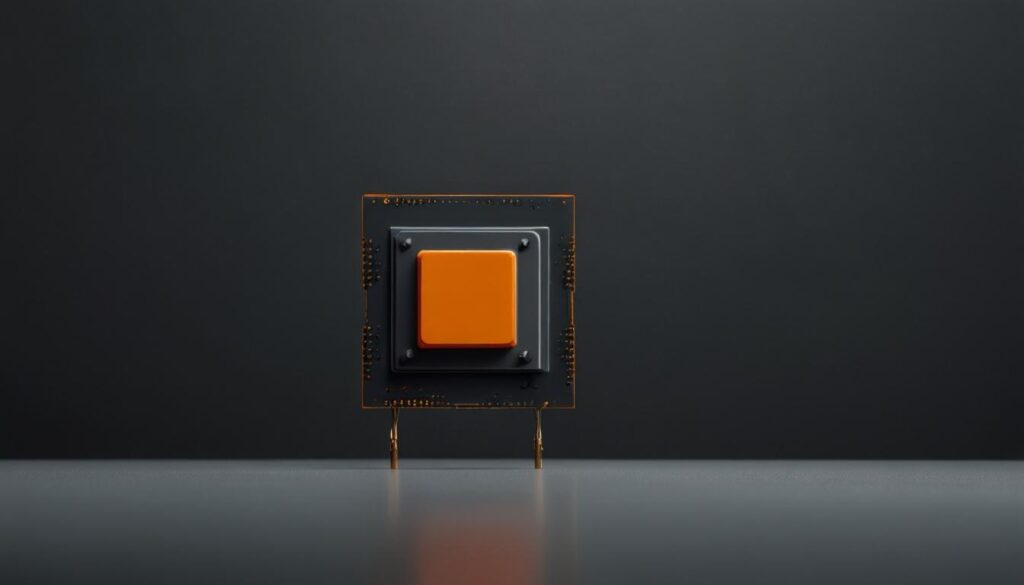SoftBank Corporation’s ambitious efforts to enter the AI chip market face hurdles as negotiations with Intel collapse, prompting a shift towards other manufacturing partners.
SoftBank’s Bid to Enter AI Chip Market Hits a Snag with Intel Talks Falling Through
In an ambitious attempt to penetrate the burgeoning artificial intelligence (AI) chip market, SoftBank Corporation, led by CEO Masayoshi Son, has faced a significant setback. The Japanese conglomerate’s negotiations with Intel Corporation to produce an AI chip failed to bear fruit, as the American chipmaker reportedly struggled to meet SoftBank’s demands.
The failed talks with Intel, which have not been previously reported, were part of Son’s larger vision to combine the chip designs of Arm, SoftBank’s prized asset, with the production acumen of Graphcore, a recent acquisition. The aim was to develop AI chips capable of rivalling market-leader Nvidia. Insiders familiar with the discussions disclosed that SoftBank had hoped this partnership could hasten its entry into the AI chip market.
Masayoshi Son envisions investing billions to solidify SoftBank’s role in the AI sector, encompassing chip production, software development, and powering data centres. Despite pitch efforts to some of the biggest tech companies, including Google and Meta, the roadmap has encountered hurdles, particularly in production alignment and partnership agreements.
The collapse in discussions with Intel occurred before the US chipmaker’s announcement in early August of significant cost-cutting measures, including thousands of layoffs. Following the breakdown, SoftBank has pivoted its focus to Taiwan Semiconductor Manufacturing Co. (TSMC), the world’s largest contract chipmaker.
Intel CEO Pat Gelsinger is on a mission to restore the company to the forefront of global chipmaking. Backed by nearly $20 billion in funding and loans from the US government as of March, Intel is aggressively investing to catch up with competitors TSMC and Samsung. Utilizing Intel’s US facilities for AI chip manufacturing could have allowed SoftBank to leverage the Biden administration’s Chips Act for additional support in domestic semiconductor production.
While both SoftBank and Intel have remained tight-lipped about the discussions, sources close to the matter indicated that SoftBank has attributed the collapse to Intel’s inability to meet its volume and speed requirements. However, these same sources noted that talks could potentially resume given the scarcity of manufacturers capable of producing cutting-edge AI processors.
Amidst these developments, Son has pitched the idea to major tech groups, seeking substantial investment and support for his venture. Such backing might cover part of the vast financial commitments needed to establish a new chip production business, with some funds potentially sourced from advance orders by these tech giants.
SoftBank’s drive to counter Nvidia’s dominance in the AI chip market is a central element of Son’s vision. Nvidia’s pervasive AI data centre chips, coupled with their extensive software platform Cuda, have secured their market supremacy. Critics of Son’s plan caution that shifting Arm into chip production could jeopardise its relationship with Nvidia, a crucial client. Nevertheless, insiders maintain that SoftBank views this risk as calculable and worth the potential reward.
Evidently undeterred by this temporary setback, Son is reportedly still pressing forward with plans to design and produce an AI chip, projecting a prototype readiness within months. The acquisition of UK-based AI chipmaker Graphcore, despite its challenges, underscores this commitment.
Securing chip production capacity remains a significant bottleneck. Talks with TSMC have yet to yield a deal, with the Taiwan-based company contending with existing customer demand, including from Nvidia. Industry insiders suggest that a successful agreement with TSMC might necessitate an additional partner to provide the chip design expertise originally sought from Intel.
The projected costs for SoftBank’s venture could escalate into the tens of billions of dollars. Although tentative discussions with potential investors from Saudi Arabia and the United Arab Emirates have taken place, no agreements have been finalised.
Adding to the evolving landscape, Intel recently disclosed that it has sold its entire stake in Arm, raising approximately $150 million. This comes amidst broader financial strains for Intel, including a $7 billion operating loss reported in April, share value depreciation, and a recent announcement to eliminate about 15% of its workforce as it grapples with declining revenue.
In summary, SoftBank’s foray into AI chip manufacturing faces substantial challenges but remains a key focus under Masayoshi Son’s strategic vision to capitalise on the AI boom.

